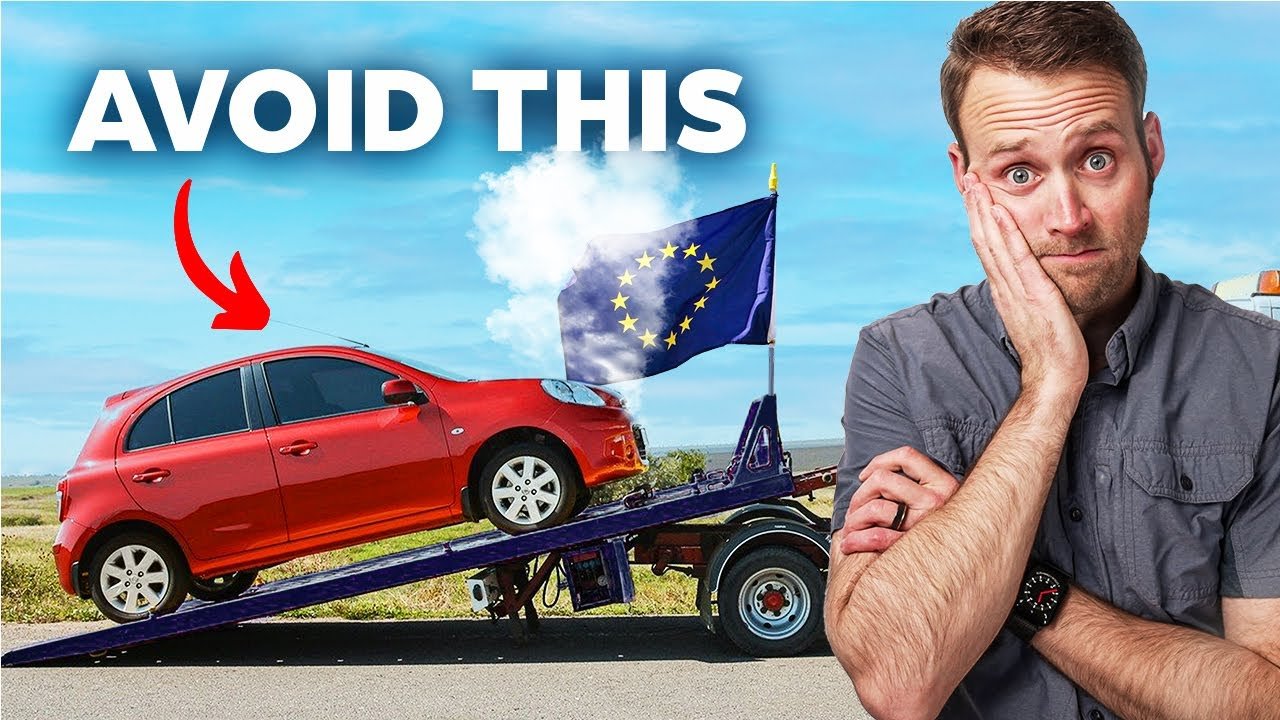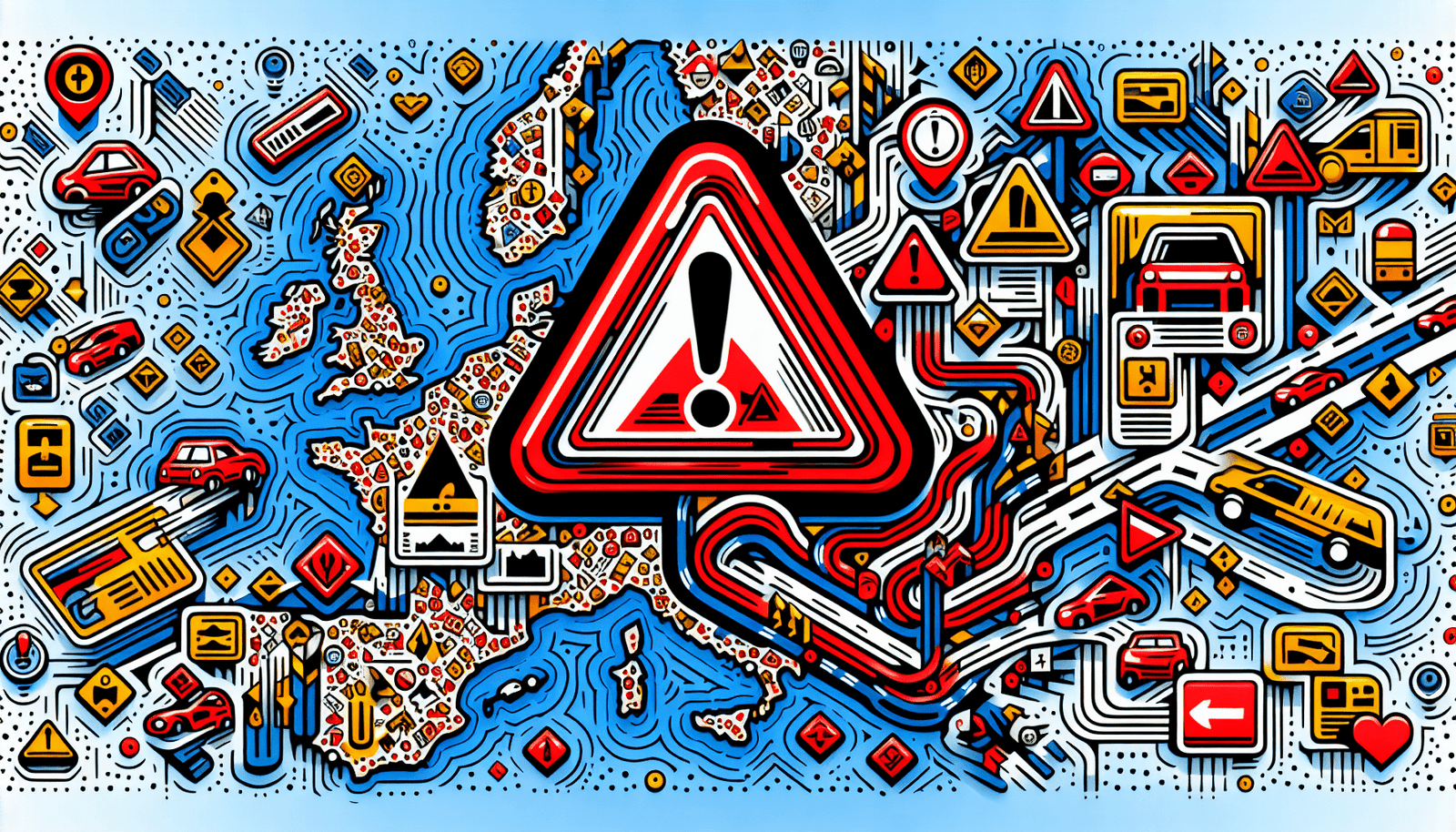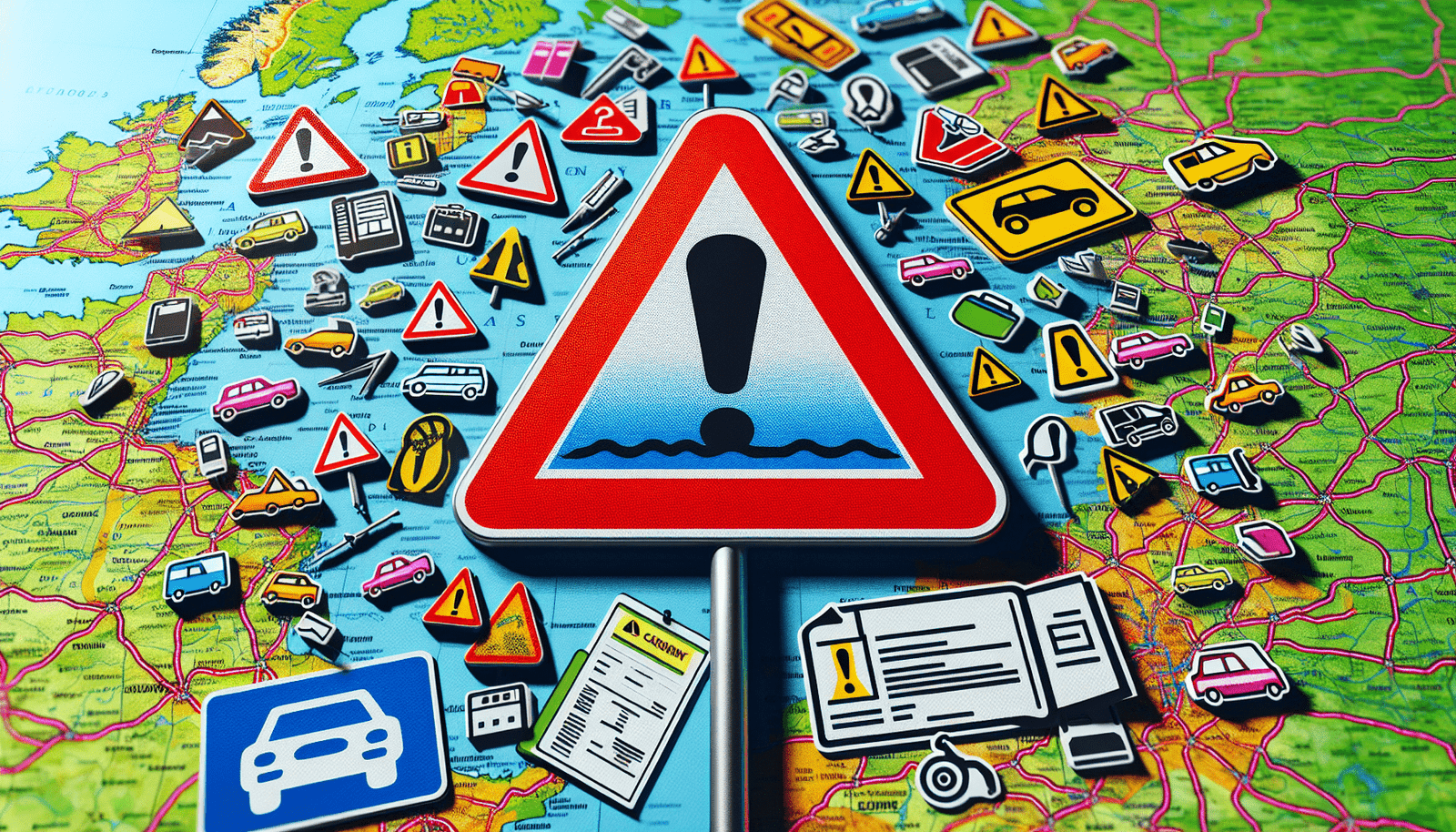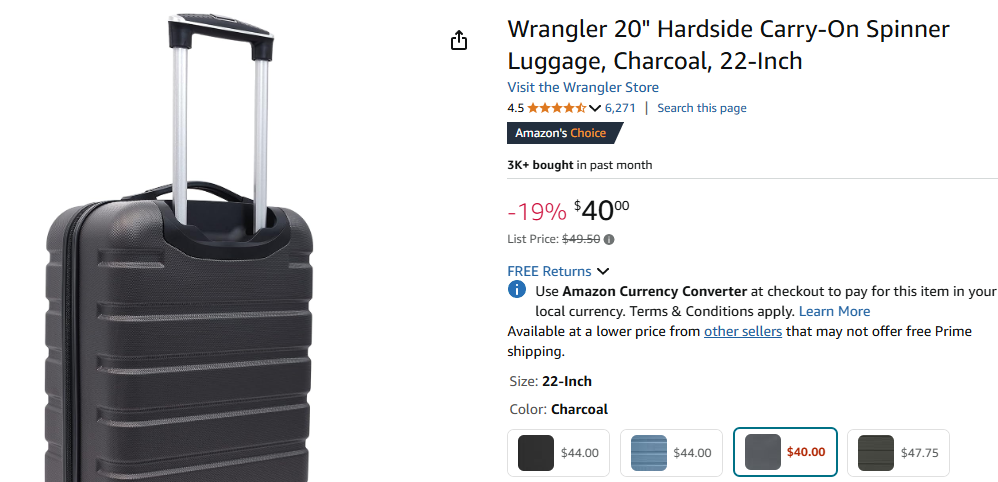Renting a car in Europe can open up a world of flexibility and adventure, allowing you to explore beautiful landscapes and charming towns at your own pace. However, it’s crucial to be aware of some common pitfalls that could turn this convenience into a costly headache. In the video by Away Together with Nik and Allie, five major mistakes to avoid are outlined, helping you dodge everything from unexpected fees to fueling disasters. You’ll also gain insights into whether a rental is truly necessary, considering Europe’s extensive rail and public transportation networks.
Aside from sharing essential tips for hassle-free car rentals, the video advises on credit cards offering primary rental insurance, which can save you from unnecessary insurance purchases. Keeping informed about regulations such as international driver’s permits and border crossing requirements can also prevent unpleasant surprises on your journey. Additionally, the creators provide plenty of resources and related travel advice, making sure you’re well-equipped for your upcoming adventures. Don’t forget that some product links are affiliate-based, supporting the channel when you choose to use them.

This image is property of i.ytimg.com.
Choosing the Wrong Car Type
Renting a car can seem straightforward but choosing the wrong type can lead to unexpected expenses and headaches. Diving into the nuances of compact cars versus SUVs, manual versus automatic transmissions, and how size and comfort factor into your journey will help ensure a smooth trip.
Compact vs. SUV: The hidden costs
When deciding between a compact car and an SUV, consider your travel itinerary. Compact cars are often more fuel-efficient and easier to park, especially in the narrow streets and tight parking areas common in many European cities. However, if your travels take you through rural areas or challenging terrains, an SUV might offer better safety and comfort. Remember, larger vehicles often come with higher rental costs and fuel expenses. The hidden costs of choosing an SUV over a compact car can quickly add up, impacting your travel budget.
Manual vs. Automatic: What you’re not considering
In Europe, manual transmission cars are prevalent and often cheaper to rent than automatics. If you’re comfortable driving a manual, it might save you some money. However, if you’re unfamiliar with stick shifts, the cost savings could be overshadowed by the stress of managing foreign roads with an unfamiliar transmission. Additionally, automatic cars tend to sell out quickly, so advanced booking is crucial if that’s your preference.
Size and comfort: How long is your journey?
Consider the length and purpose of your journey when evaluating size and comfort. For short city trips, a smaller car can be more practical. If you’re embarking on a long road trip with lots of luggage or travelling with a group, you’ll likely appreciate the extra space and comfort that a larger vehicle offers. Think about your comfort needs versus the practicality and costs involved in selecting your car type.
Ignoring Local Driving Regulations
Traveling internationally involves understanding and adhering to different traffic laws. Ignoring local driving regulations can lead to fines and complications. Here’s what you need to know to drive worry-free in a foreign land.
International Driver’s Permit: Yes or No?
An International Driver’s Permit (IDP) isn’t always mandatory, but having one can simplify interactions with local authorities. Some countries require it, while others do not. Even if it’s not obligatory, having an IDP can serve as a helpful translation of your domestic driver’s license, potentially speeding up police interactions and reducing language barrier issues.
“No Drive” Zones: What they didn’t tell you
Many European cities have “no drive” or low-emission zones, which restrict vehicle access to minimize pollution and congestion. These zones can be cumbersome for those unaware, as entering without proper authorization can lead to hefty fines. Always research your destinations ahead of time to determine if any such zones exist and if your rental is compliant.
Speed Limits and Traffic Signs: They look familiar… or do they?
Speed limits and road signs may look familiar, but they often differ from those at home. Speed limits can change rapidly in Europe, especially between urban and rural zones. Additionally, signs may rely heavily on symbols rather than text, so having a basic understanding of what these symbols mean is essential for a smooth driving experience.
Overlooking the Rental Contract Fine Print
The excitement of starting a trip can lead to glossing over the rental contract details, a mistake that might have significant financial implications. Here’s a closer look at what you shouldn’t miss.
Mileage Limits: The silent trip killer
Some rental agreements include mileage limits, and exceeding these can result in costly fees. Understanding whether your rental has a mileage cap is vital if you plan to cover long distances. Unlimited mileage offers more flexibility and can be a better option if you’re unsure how far you’ll be driving.
Return Policies: Watch out for those late fees
Returning your car late can incur substantial late fees. It’s crucial to understand the return window and policies concerning late returns when you pick up your rental. If your travel plans are flexible, consider arranging a buffer period to avoid unexpected travel delays impacting your rental schedule.
Additional Driver Fees: Who’s really in the driver’s seat?
Planning to share the driving responsibilities? It’s important to register any additional drivers with the rental company. There are often additional fees for extra drivers, and failing to declare them can void your rental agreement or insurance coverage. Check the terms to avoid headaches later.
Underestimating the Fuel Policy
Understanding the fuel policy of your rental car is essential to avoid surprise charges and ensure a hassle-free return.
Full-to-Full vs. Pre-Paid Fuel: Cha-ching or savings?
The full-to-full fuel policy is usually the most cost-effective, requiring you to return the car with a full tank of gas. On the other hand, the pre-paid fuel option might be convenient but often costs more. Evaluate your travel schedule and choose the fuel policy that aligns better with your plans and budget.
Fuel Errors: Gasoline or diesel—which one’s which?
Mistakes in fueling your rental can be costly. Determine beforehand whether your rental car runs on gasoline or diesel to avoid mix-ups. Labels and colors can vary across countries, so verify at the pump or ask when in doubt.
Locating Gas Stations: Last-minute refuel—no bueno
Knowing where to find gas stations, particularly near the rental return location, can save you time and stress. Some airports and major city centers might have limited options, so plan your refill beforehand. Use apps or maps to locate nearby stations to ensure a smooth return process.

Navigating Without Proper Preparation
Getting lost or relying on subpar navigation tools can dampen the adventure. Proper preparation ensures you navigate foreign territories like a local.
GPS Rentals: Life saver… or money sink?
Renting a GPS device from the car rental company can be convenient but might come with a high price tag. Evaluate if it’s worth the cost compared to using your smartphone or personal GPS device. Remember that local SIM cards or data plans can help reduce roaming costs if you decide to use your phone’s navigation.
Offline Maps: Your best free option
For those trying to save on mobile data, offline maps can be downloaded prior to travel. These maps can function without an internet connection, ensuring you have access to your route at all times. Several free map apps offer this capability, ensuring you’re never lost even without cellular data.
Local Navigation Apps: Outsmart the tourists
Local navigation apps can provide accurate, real-time updates on traffic, road closures, and the best routes. These apps are invaluable tools for beating the common tourist traps and ensuring a smooth journey. Look for apps popular in the region you’re visiting, as they might offer features specific to that locale.
Not Double-Checking Insurance Coverage
Insurance coverage can be daunting, but understanding your options can save you money and grief should issues arise.
Credit Card Coverage: What does it really cover?
Many credit cards offer rental insurance coverage, but the specifics can vary widely. Review your credit card policies before renting a vehicle, noting the extent of coverage and any conditions or exclusions that might apply. Often, credit card insurance is secondary, meaning it covers what your primary insurance doesn’t.
Collision Damage Waiver: Is it worth the cost?
A Collision Damage Waiver (CDW) can significantly reduce your liability in case of an accident, but it also comes at an additional cost. Determine your comfort with potential out-of-pocket expenses in case of damage to decide if purchasing the waiver is necessary for your peace of mind.
When to Use Third-Party Insurance: Getting the best deal
Third-party insurance can sometimes offer better rates or terms than those offered by the rental company. Research your options to see if third-party coverage aligns with your needs, both in terms of cost and coverage comprehensiveness.

Forgetting About Cross-Border Issues
Crossing borders in Europe with a rental car can bring delight and complications. Navigating these seamlessly requires prior knowledge and planning.
Different Countries, Different Rules: Brace yourself
Driving rules can vary between European countries, from road signs to speed limits. Familiarize yourself with the basic driving regulations of each country you’ll be visiting to avoid infractions and fines.
Extra Fees for Crossing Borders: Egads, another charge!
Some rental agreements impose additional fees for crossing international borders. These fees can add up, especially if traveling through multiple countries. Review your rental agreement and discuss your travel plans with the rental agency to understand these potential costs.
Return Fees in Different Countries: Think ahead
Returning a rental car in a different country from where you rented it can incur steep fees. Consider planning your itinerary to avoid cross-border returns or, if necessary, factor these costs into your travel budget to prevent sticker shock.
Overrelying on Car Rentals
While a rental car offers flexibility, it isn’t always the most practical travel option. Evaluating alternative transportation modes can lead to a more efficient and enjoyable journey.
Is a Car Really Necessary?: Public transport might be all you need
Europe’s public transport is often excellent and can eliminate the need for a car. Urban areas are usually well-served by buses, trams, and subways, translating to fewer parking hassles and costs. When planning your trip, consider if public transport can meet your needs, especially if your itinerary is confined to major cities.
Exploring Rail Networks: Trains as the ultimate chill travel option
Trains offer a relaxed way to travel between cities and regions. They provide a scenic and leisurely journey, often covering long distances more efficiently than driving. Rail passes can also offer substantial savings for those planning extensive train travel.
Big City Hurdles: Where parking can be a nightmare
Parking in Europe’s big cities can be a daunting and expensive ordeal. Choosing to forego a rental vehicle in favor of public transport or walking can save time and reduce stress, making for a pleasant urban exploration experience.
Overlooking Technology and Connectivity Options
Staying connected and leveraging technology can greatly enhance your driving experience. Here’s how to make the most of the digital age while on the road.
Wi-Fi Hotspots: Your connection lifeline
Opting for a portable Wi-Fi hotspot can keep you connected without burning through mobile data or incurring roaming charges. This connectivity facilitates navigation, communication, and access to travel resources anytime.
Roaming Charges: Avoid blowing the budget
International roaming charges can creep up in unfamiliar territories. Avoid surprises by switching to local SIM cards or international data plans, ensuring you stay connected without exorbitant fees.
Car USB Connectivity: Let’s not run out of juice
Access to USB ports in rental cars allows you to keep devices charged throughout your journey. Confirm that your rental vehicle includes USB connections or bring a car charger adapter to avoid power issues.
Conclusion
Plan it Well: Why diligence beats drama
Taking the time to thoroughly plan your car rental strategy ensures a smoother, drama-free experience. From understanding vehicle types and local regulations to recognizing alternative travel options and technology opportunities, every bit of diligence counts.
Maximizing Enjoyment: Tuning into the joy of travel
Avoiding car rental pitfalls allows you to focus on the joys of travel, embracing new adventures with peace of mind. A well-prepared traveler is better equipped to savor the experiences and memories that await.
Action Items: Make your dream trip hassle-free
Start by reevaluating your travel needs and preferences when it comes to car rentals. Review regulatory requirements and insurance policies, and embrace public transport where feasible. Equip yourself with the necessary technology to stay connected, and remember that thorough preparation transforms potential hassles into mere footnotes in your travel saga.
Some of the links on this site are affiliate links, which means I may earn a small commission if you click on them and make a purchase, at no additional cost to you. As an Amazon Associate, I earn from qualifying purchases.

